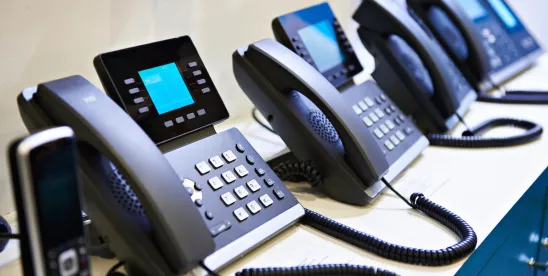TCPAWorld.com broke the news on Friday that a federal jury in Oregon state had apparently awarded $925MM to a certified Telephone Consumer Protection Act (“TCPA”) class on Friday. The case was brought by Edelson, P.C. against a multi-level marketing company called ViSalus. The jury found that the company made 1,850,436 unlawful automated calls resulting in an award of $925,218,000.00, or so it seemed.
An Oregonian report entered shortly after the trial seemed to confirm the findings:
“A federal jury Friday found a Michigan-based marketing company engaged in unlawful telemarketing by placing nearly 2 million recorded robocalls to potential customers across the United States offering deals on weight-loss products, dietary supplements and energy drinks. The jury of seven women and one man determined the company made 1,850,436 unlawful automated calls to residential or cellphone numbers. Each violation calls for a $500 penalty, bringing the damages to just over $925 million for a class consisting of about 800,000 people.”
But according to an e-mail received by TCPAWorld from ViSalus’ counsel— John O’Neal of Quarles & Brady—news of ViSalus’ demise may have been greatly exaggerated: “The statement that there was a $925[MM] damages award is not true. Rather, the verdict was a special form where the jury answered questions. Again, it was not a damages award and the judge has reserved ruling on damage issues for future briefs and hearings.”
He goes on to explain that Plaintiff may not have obtained the critical ruling needed to sustain a verdict: “[W]e believe that special verdict shows that plaintiff failed to prove essential elements of her class claim…. the jury wrote in Defendant’s favor on the special verdict form “we cant tell” (or similar language) for the two questions regarding the number of alleged calls to mobile phones and the number of alleged calls to residential phones.”
According to the Oregonian report, the Defendant had argued in closing argument that plaintiffs made “unreasonable’’ assumptions that weren’t backed up by corroborating evidence or witnesses. “They tried to extrapolate, guess and speculate,’’ O’Neal is quoted as having told jurors.
In his e-mail, O’Neal conveyed to TCPAWorld that this argument struck a chord: “We were gratified to see that the jury agreed with us on those points and look forward to upcoming hearings to implement the correct legal results flowing from the special verdict. Indeed, whether there will even be a damages award, as well as whether the class should now be decertified as a result of the jury’s answers, will be the subject of further proceedings in the coming weeks and months. We are excited about putting our positions before the Court as soon as we can though, and are already preparing briefs on those very issues.”
How very very interesting.
Since I have nothing else better to do I went ahead and pulled the verdict form to take a look for myself. Turns out O’Neal is right, at least to a degree.
On the one hand, the jury found 1,850,436 calls were made “in violation of the TCPA” to cellular telephones and residential landlines “combined.”

But on the other hand, the jury was not able to determine which calls were made to landlines and which were made to cell phones. Rather than supply a count the jury, indeed, writes in “We cannot tell”:

So now the real question–will this discrepancy matter? Since these were pre-recorded marketing calls the consent standard is the same as to both populations– express written consent was required and, apparently, not obtained. So one wonders why the verdict form even included questions 5 and 6. Perhaps this becomes an ascertainability question.
We’ll keep a very close eye on developments and report as more information becomes available.
If the “verdict” is what it seems, it may result in largest TCPA verdict ever handed down by a jury to my knowledge. The judgment Golan v. Veritas Entertainment, LLC, 2017 WL 2861671 (E.D. Mo. 2017), which was tried to a jury, was originally set to be much larger—the court reduced on constitutional concerns– but judgment was entered as a matter of law, without the jury ever ruling.
Also interesting, this case was something of an inside job. The class representative was actually a former promoter for the company, who quit after just four months on the job apparently due to being unhappy with the company. The suit arose because she allegedly received calls from Visalus years later, prompting the suit. (Note to self: don’t call (disgruntled?) former employees pitching products they didn’t want to sell, much less use. Got it.)
One final note, Jay Edelson had remarked on the Squire Patton Boggs Unprecedented podcast that as many as 5,000,000 illegal calls may have been made. (Listen at the 52:20 mark– “there are 5,000,000 calls.”) The fact that the jury found only 1.8MM illegal must be viewed as something of a victory for the Defendant. On the other hand, the issue of willfulness was reserved for the Court so things still might get a lot worse before they don’t get any better for ViSalus.
More to come.




 />i
/>i

